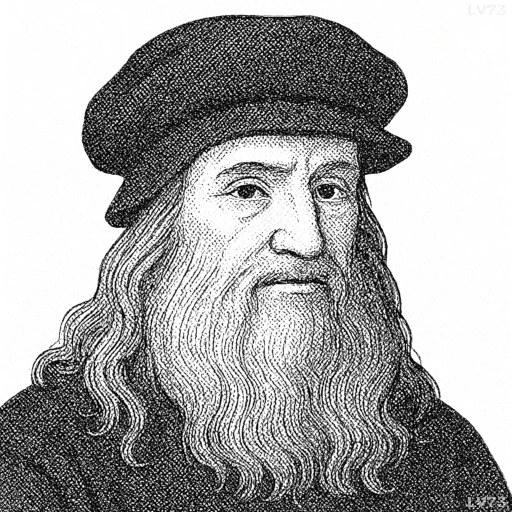“Although nature commences with reason and ends in experience, it is necessary for us to do the opposite, that is to commence with experience and from this to proceed to investigate the reason.”

- April 15, 1452 – May 2, 1519
- Italian
- A versatile man (painter, sculptor, architect, inventor, scientist, etc.)
table of contents
Quote
“Although nature commences with reason and ends in experience, it is necessary for us to do the opposite, that is to commence with experience and from this to proceed to investigate the reason.”
Explanation
In this quote, Leonardo da Vinci acknowledges the different approaches that nature and humans take toward understanding. Nature, in its wisdom, operates according to reason first and then follows with experience. However, Da Vinci suggests that humans, in their pursuit of knowledge, must begin with experience—the direct observation and interaction with the world—and then move on to investigate the reason or the underlying principles that explain those experiences. This method reflects Da Vinci’s belief in the empirical process—the idea that knowledge begins with observation and experiment, and only through that foundation can we then develop theories and understanding.
Historically, this reflects Da Vinci’s approach to both art and science. As an artist, he observed nature carefully before applying the theoretical knowledge he had gained from studying anatomy and light. As a scientist, he believed that to truly understand the laws of nature, one must observe and test them first, rather than relying solely on abstract reasoning or previous assumptions. This approach was part of the larger Renaissance humanism, which emphasized the importance of experience and observation in the pursuit of knowledge.
In modern terms, this quote is a call to embrace the scientific method—starting with empirical data and direct observation of the world, and then proceeding to develop theories and explanations based on that experience. It underscores the importance of experimentation, practical engagement, and inquiry as the foundation of knowledge. Da Vinci’s words encourage us to look beyond mere assumptions or abstract reasoning and to ground our understanding in real-world experiences, testing and refining our conclusions through observation and hands-on learning.
Would you like to share your impressions or related stories about this quote in the comments section?



